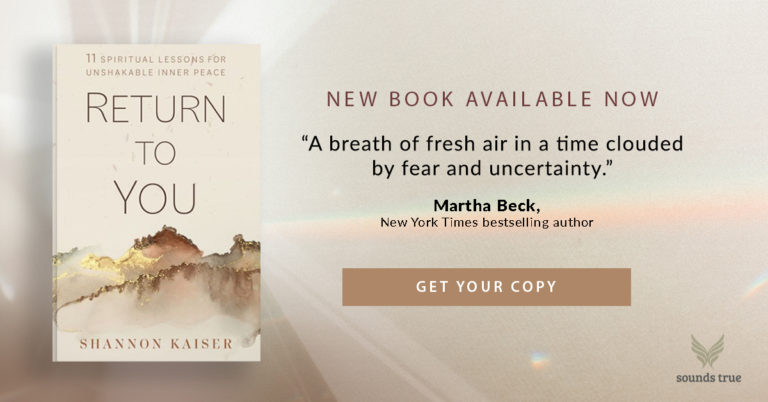When it comes to moving forward in life, fear has a way of holding us back. As a spiritual author, teacher, and mindset coach, I believe that these fears are often the result of unmet childhood needs. Some of our core wounds have been with us for so long that we don’t even realize they are part of our daily operating systems. Yet dedicating yourself to a life of personal growth and spiritual awakening means peeling back these layers. To get to wholeness, we have to address the fractured pieces within.
How our core wounds affect our relationships with others.
It wasn’t until recently that I discovered a core wound that had been driving my life for the past four decades: a fear of abandonment.
Many of us have core abandonment wounds—it’s hard to grow up in our society without them. For me, I believe that they started the day I was born. As a premature baby, I was put into a plastic box for the first six weeks of my life. I was separate from the world, left out, and this conditioned me to feel as if something must be wrong with me. I created the belief, “I am unlovable and don’t fit in.”
Maybe your fear of abandonment started when you were left to cry in a crib or playpen, bullied at school, or lied to by someone you cared about. When we are wounded at a young age, we cannot handle the pain, so it’s only human to resist it. This is when we split away and start to operate as a fraction of our true selves.
Then, later in life, especially when we fall in love or get closer to a new person, these old wounds become activated. They can cause friction when our beloved gets angry, withdraws, gives attention to someone else, says mean things, doesn’t tell the truth, misunderstands us, etc. Suddenly, the pain that has been pushed aside all these years comes roaring to the surface.
We think that we are reacting to the present situation, but what is really happening is that the old, unhealed abandonment wound has been working its way to the surface and now is in full eruption mode. We might find ourselves suddenly enraged or falling apart with intense tears.
If and when this happens, take a moment to recognize it as an important time of deep healing. These unprocessed emotions are coming to the surface so they can be transmuted from fear into love for good.
Ways to recognize your core wounds:
- Understand your triggers and realize how your past unhealed wounds play out in the present.
- Engage in inner-child work with a coach or therapist.
- Practice self-care and self-love daily.
- Set boundaries and understand your own needs vs. other people’s needs.
- Commit to practicing inner peace.
- Observe your past patterns to learn what you do and don’t want in life.
- Practice positively reframing internalized beliefs (e.g., “I am unlovable” to “I deserve love and have a lot to give”).
- Build a community and/or join support groups with folks who share similar experiences.
- Be patient and kind to yourself through the healing process.
What I’ve found helpful for healing the abandonment wound:
1. Discover home within yourself
As you establish a deeper bond with yourself (your inner child, as well as your more evolved higher self), you will naturally have deeper connections with others too. But this can only happen when you stop searching for safety and comfort outside of you. Home is not a place outside but an awareness of the love you are within. It all starts at home with the self.
2. Ground yourself in nature
Ground yourself breathe in the fresh air. Take in the majesty of nature as often as you can, as it can give you a sense of “oneness.” You may realize that you are not so alone. You are a part of this vast Universe and everything is interconnected.
3. Recognize oneness in all
In recognizing we are all one, we can start to see how our fear of being abandoned comes from the ego. Your authentic self knows there is no such thing as separation, yet your soul has come to earth to experience these lessons to grow into greater love.
4. Find your own ways to self-soothe
How do you like to self-soothe? Whether it’s with crystals, baths, yoga, meditation, or breathing, focus on activities that regulate you and soothe your nervous system. I personally love going for walks in nature, getting into the water, meditating, journaling, and praying.
5. Face your feelings in the moment—even “negative” ones.
You have the power to take darkness and transmute it into light. We all do this by bringing understanding, love, and compassion to painful experiences.
Avoiding or ignoring your negative feelings will only intensify them. Instead, try being mindful and present with these feelings. As I share in my book Return to You, your feelings are gateways to your higher self. They contain information that can help you transform limitations and step into peace and wholeness.
The article was written originally and published on mindbodygreen.com


